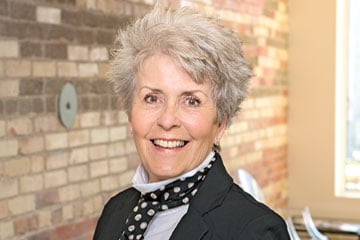
If it were up to Paul Schabas, the Law Society of Ontario’s governing board would be smaller.

If it were up to Paul Schabas, the Law Society of Ontario’s governing board would be smaller.
A task force the LSO treasurer convened to look at governance issues is expected to introduce a report at Convocation in February that will kickstart a discussion about the size and composition of the board and how it functions, says Schabas.
“No other comparable organization that we can find virtually in the world has a board the size of our law society Convocation,” says Schabas.
The law society’s board is currently made up of 40 elected lawyer benchers, five elected paralegal benchers, eight appointed lay benchers, life benchers and ex-officio benchers, including former treasurers and attorneys general. Of the 40 elected lawyer benchers, 20 are from Toronto and the other half are elected from outside the city.
LSO’s Convocation can often have more than 60 benchers in attendance, which some say makes the body too unwieldy to properly function.
In comparison, the Law Society of Alberta has just 24 benchers, including four lay benchers. The Law Society of British Columbia has up to 31 benchers.
Schabas, who as treasurer does not have a vote at Convocation, says a smaller board could operate much more efficiently.
“The board is more engaged if it’s smaller,” he says.
“It’s easier to reach consensus on decision-making, on challenging issues and there is more accountability as well.”
Some have questioned whether the board should operate more as a corporate board would.
Others have challenged whether benchers should be elected at all or if it would make more sense for them to be appointed based on particular skills, background and diversity.
This stems from concern over a tension for benchers between their obligation to regulate the profession in the public interest and the fact that they are elected by members of the very profession they are meant to regulate.
But if benchers were appointed, the question would then become who would be in charge of appointing them, benchers say.
In its research, the task force has been reviewing governance models in other professions, as well as other provinces and countries.
Life bencher Heather Joy Ross says the first place the law society should look in terms of governance models are those of indigenous peoples.
She says that their processes are focused on inclusivity, reconciliation and respect for elders and what they have to bring to the conversation.
“We have much to learn from them,” she says.
She says the board also needs to have fair representation across the board for different practice types, geography, gender and race.
It is not clear yet what potential recommendations the task force may propose in the process, but the group was mandated to look at everything in the law society’s governance structure.
One of the questions the task force will tackle is what benchers’ roles should be regarding operations and policy, says Schabas.
This will include exploring what benchers should be doing as a policy board and what they should leave its experts on the operational side of the law society to do.
Schabas also tasked the group with looking at the size and number of committees, as well as the frequency of meetings.
During his term, Schabas has cut down the size of the law society’s committees so that they have 15 members at the most — a size he says makes them more effective.
Some life benchers — a position for benchers who completed four elected terms before term limits were implemented — have expressed concern that they have had a diminished role on committees in recent years.
Schabas has defended his committee appointments, saying priority must be given to elected and appointed benchers rather than life benchers.
Ross, who was first elected in 1995, says she would like to see the board whittled down to 20 benchers.
She says it has become abundantly clear that Convocation is just too big to accomplish effective policy work or the running of such a large organization.
She says there still, however, needs to be a role for life benchers, who can be a valuable resource.
“There is also a danger of throwing the baby out with the bath water,” she says.
Ross hopes there will be a way for life benchers to offer their wisdom and institutional memory in whatever changes may occur.
Schabas says there is general agreement that the law society’s governance structure is somewhat cumbersome and challenging.
It remains to be seen whether benchers will be able to agree on what changes need to be implemented to make the board function more efficiently.
“This is always a challenging issue, but we’re going to have some vigorous discussion about modernizing our governance structure,” he says.
In May 2017, benchers approved recommendations the governance task force put forward to make lawyer and paralegal bencher elections occur on a single date, starting on April 30, 2019. Previously, lawyer and paralegal bencher elections happened in different years.